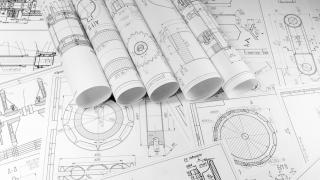
In this day and age, we have a range of resources at our fingertips that make everyday life - as well as our jobs - easier. Whereas engineering buyers traditionally relied upon their own technical knowledge to ensure that they got the best supplier for the job, does the same apply for modern manufacturing purchasers?
Technical vs. Non-Technical:
It’s easy to see how non-technical buyers may sometimes feel a little daunted when sourcing for subcontract engineering services.
It goes without saying that companies of all types, from every industry, usually have a purchasing department. Within larger OEMs, buying tends to be headed up by a purchasing manager, supply chain manager, project manager, or production manager. These buyers usually have an engineering background, meaning that they fully understand technical drawings, as well as the accompanying material data. This knowledge enables them to target the right type of supplier for their project, as well as troubleshooting any queries or issues that arise with production.
However, procurement within smaller manufacturers is often left down to non-technical buyers. These buyers often possess great purchasing skills; however, their knowledge of engineering processes may not necessarily be as in-depth as that of buying staff within larger OEMs - especially if their background lies within another industry. This means that they often require assistance from a supplier to determine the optimum manufacturing process to be used for their project. Non-technical buyers are also much more cost-driven, leading them to focus on the overall price of the product instead of any value-adds that a supplier is offering. Again, this is usually down to a lack of understanding of the engineering processes involved within their requirements.
With any number of different processes available to a purchaser, it’s easy to see how non-technical buyers may sometimes feel a little daunted when sourcing for subcontract engineering services. It can take years of training to become fully proficient in engineering and buyers who have come into this field from another industry (and who are usually also responsible for the purchasing of day-to-day supplies for the company) can sometimes initially struggle to get up to speed.
Universal Buying Skills:
Technical knowledge is just the icing on the cake; it’s not a necessity provided that a buyer is able to collaborate with their supplier.
Of course, there are a lot of skills which are universally applicable to purchasing - whether as a supply chain manager or a non-technical buyer. Many purchasers are able to build a great relationship with their suppliers by demonstrating excellent communication skills, whilst a non-technical buyer’s penchant for cost saving will almost certainly please their employer (provided that there hasn’t been a compromise on quality). Disruptions in the supply chain will inevitably occur from time to time, meaning that purchasers also have to be adept problem solvers to overcome any hurdles they may face.
These skills are the foundations of effective procurement and a buyer may not be able to perform their job correctly if they aren’t able to think strategically and build a rapport with suppliers. Technical knowledge is just the icing on the cake; it’s not a necessity provided that a buyer is able to collaborate with their supplier on the finer details of their project.
Gaining Technical Know-How:
With that being said, non-technical purchasers will certainly benefit from teaching themselves the basics of engineering. Knowledge of processes, material data and the market will pay dividends when it comes to effective engineering procurement. Luckily, this information is widely available - you certainly don’t need an engineering degree to become a successful engineering purchaser!
The internet is full of useful resources for those who are looking to build their knowledge base, such as Youtube videos demonstrating different engineering processes and articles relating to materials, accreditations and much more. The Qimtek Blog itself contains a wealth of engineering information that non-technical buyers will find easy to understand and digest. Further to this, Qimtek always aims to educate non-technical buyers about engineering drawings and processes - we’re always here to help if needed.
In Conclusion:
Much of what is required to purchase engineering services successfully comes down to having a thorough understanding of your company and what it values.
Much of what is required to purchase engineering services successfully comes down to having a thorough understanding of your company and what it values - it doesn’t necessarily rely on having a wealth of engineering knowledge behind you. A basic grasp on buying structures, such as a bill of materials, will certainly help, although this know-how will be absorbed organically over time.
For those who are new to the industry, it’s best to consult your supplier and take their advice when sourcing for bespoke engineering projects. Almost every supplier will be more than willing to provide their input and work with you to uncover the best solution - they understand that not everyone is as well-versed in engineering as they are!
Buyers of all types will benefit from using our supplier-funded Drag, Drop, Source! service, which provides you with quotes from interested suppliers directly to your inbox. Our sourcing team fully understands technical drawings and processes, meaning that we can pick the best suppliers on your behalf. Simply click the button below to get started.
Click here to use our Drag, Drop, Source! Service.
--
If you require any further assistance or if you have any queries relating to the understanding of technical drawings or processes, then please call our sourcing team on 01256 394 500, or email [email protected].